Growing up in Darjeeling, Rupmani Chhetri, the 37-year-old co-founder of SignAble Communications, felt a deep sense of loneliness.
Speaking to The Better India, Rupmani says, “As a child, I believed that I was the only Deaf person in the world. With no awareness of sign language, I experienced discrimination with various labels placed on me because of my Deafness. I was excluded from family activities and conversation and struggled in school, as teachers would speak and I could not hear.”
With no adequate school for the Deaf in Darjeeling at the time, Rupmani’s father, a security guard, spent whatever he could to put her in a regular school.
“Efforts to express myself through sign language were met with punishment from teachers who failed to recognise my disability. Since I was a Deaf child, I felt isolated and unheard. My early education was mostly just copying notes without understanding concepts, except for geography, which I found more accessible due to its visual nature,” she recalls.
“My extended family was convinced that I would never succeed academically and saw the process of educating me as a futile effort. By the time I was 9 or 10, I had to start working to cover the costs of my school essentials. Making matters worse, I was also forced into speech therapy, as there was no access to sign language available to me,” she adds.
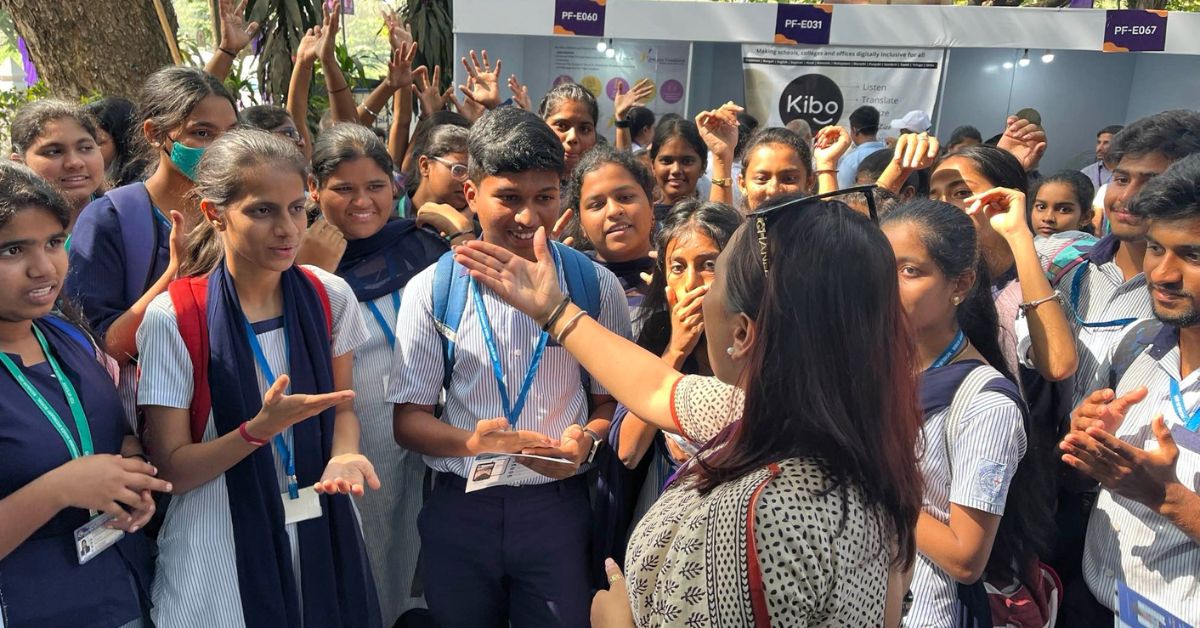
Given Rupmani’s incredible struggles early on, it’s remarkable that years later she would go on to co-found a venture called SignAble Communications, which among other things, has developed an app that provides a video relay service that empowers the Deaf to communicate and express themselves without barriers. The app offers Deaf persons “access to a live interpreter at their fingertips, anytime and anywhere, all at an affordable price”, she says.
Thanks to the app, Deaf people can communicate with essential service providers like the police and doctors, while also allowing them to communicate with their family and work colleagues. Here’s the remarkable story of how she found herself and developed an app which is helping open up different worlds for thousands of Indians who cannot hear.
Discovering her identity
After studying up till Class 9, she got married to her Deaf partner and they moved to Delhi.
“I initially saw marriage as a way to address my challenges and start anew, which led me to move to Delhi. After facing numerous difficulties in the relationship, I made the difficult decision to return home but my family didn’t approve and insisted that I needed to figure things out on my own,” she recalls. It was only after her divorce in 2011 that Rupmani resumed her studies and went on to finish high school. She would go on to earn a bachelor’s degree in sociology.
“Living in Delhi ultimately provided me with the opportunity to connect with other Deaf individuals in my early twenties,” she recalls.
“It was the first time I witnessed sign language being used among the Deaf community. I longed to join them, but they often excluded me because I didn’t know sign language,” she adds.
Thankfully, she found resources developed by organisations like the Noida Deaf Society (NDS) and ‘The Way Deaf’ to learn sign language, supplemented by various YouTube videos.
“Sign language is the native language of the Deaf community, allowing individuals to express themselves and communicate authentically, just like anyone else. It is a fundamental right, and access to it should be provided from a young age,” she argues.
Assisting her during this time in Delhi were disability rights activists like Geeta Sharma of the National Association of the Deaf (NAD) and the late Javed Abidi from the National Centre for Promotion of Employment for Disabled People (NCPEDP) who she believes played a “pivotal role in helping me discover the true essence of knowledge”.
“They introduced me to the Deaf community and other specially-abled communities and provided invaluable guidance that has empowered me to navigate the world with confidence. I am deeply grateful for their support during this crucial phase of my life; without their mentorship, I would have felt lost. Through their encouragement, I learned sign language, forged meaningful friendships, and embarked on a transformative journey to discover my own identity,” she says.
After a brief stint with the NAD, she began working with HAQ: Centre for Child Rights, a Delhi-based non-profit. Her nearly six-year stint at HAQ landed her an opportunity to work with the United Nations Development Programme (UNDP) in 2017 in Europe where, among other things, she discovered the transformative impact of Video Relay Service (VRS) for the Deaf.
According to a blog published on the UN Volunteers website, “Motivated to bring a change, Rupmani started her UN Volunteer journey with the aim of establishing a cross-cultural dialogue and exchange of knowledge between Ukraine and India.”
As a Communications Assistant, she “supported the internally displaced people of the war” and “conducted sign language courses for teenagers and adults with hearing impairment”.
“She did the same for UN colleagues in Ukraine, Germany and India,” it further said in the blog.
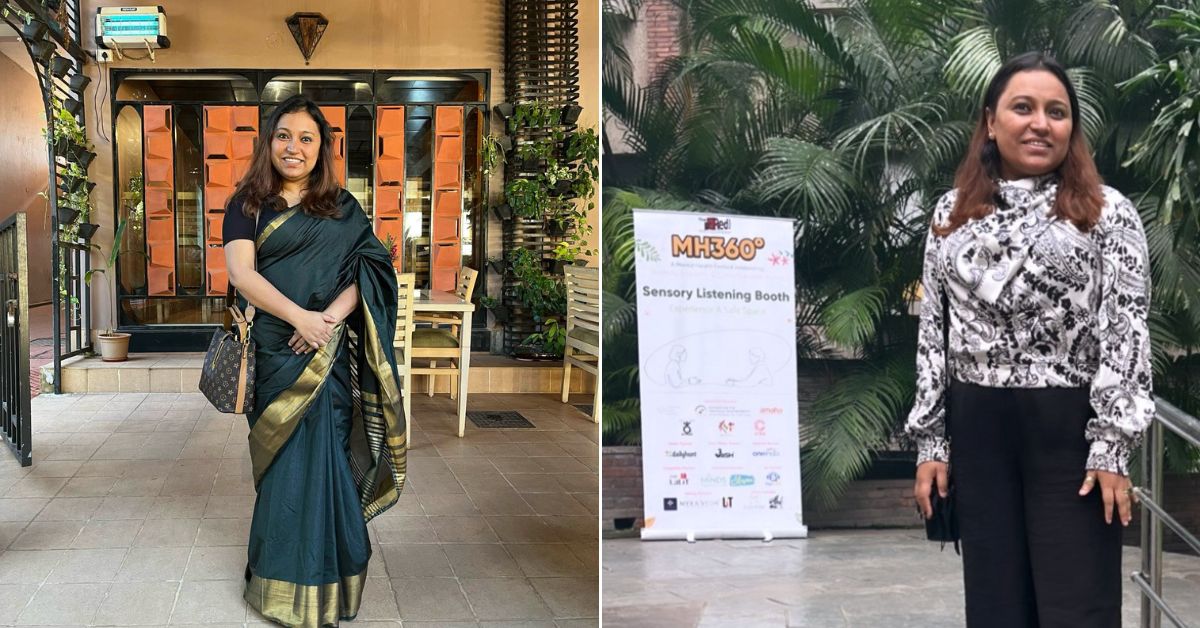
“Through the war, some people had acquired disabilities or become injured, including around 300 Deaf people who had become displaced. They were asking me, as a fellow Deaf person, for help. I was not aware of how to help, so I had a lot to learn, especially how to deal with post-traumatic stress disorder. Deaf people wanted to tell me their stories and what they went through. By being able to communicate with me, I was able to give them a message of love and reassurance,” she told UN Volunteers.
During her one-and-a-half-year stint in Ukraine, Rupmani also took part in multiple initiatives with other UN agencies — including the Office of the United Nations High Commissioner for Human Rights (OHCHR), United Nations Children’s Fund (UNICEF), and the United Nations Refugee Agency (UNHCR). It was a truly rewarding time for her.
Speaking to The Better India, she recalls, “Despite facing numerous discouragements, I made it a point to embrace life as a series of risks, willing to try anything that came my way. I moved to Ukraine and travelled across Europe, where I was amazed by the robust access to sign language in other countries, especially the availability of technology like VRS. This exposure allowed me to learn and grow in ways I had never imagined.”
SignAble for the Deaf
Following her time in Europe, Rupmani came back to India. While looking for a job, she encountered Tarun Sarwal, who also returned to India after spending more than a decade working with humanitarian organisations in Europe.
Speaking to The Better India, she says, “I first met Mr Tarun while I was looking for a job after returning from my work at the UN. A common friend introduced us online, and during our initial conversations, Tarun asked how I could contribute to supporting people with disabilities. After many discussions about potential projects and ideas, we decided to meet in person. Our first face-to-face meeting took place on 1 January, 2019, in Bengaluru, amidst the Deaf community.”
It was during his time working in Geneva with an international humanitarian organisation that Tarun was inspired by the difference an interpreter could make in a Deaf person’s life.
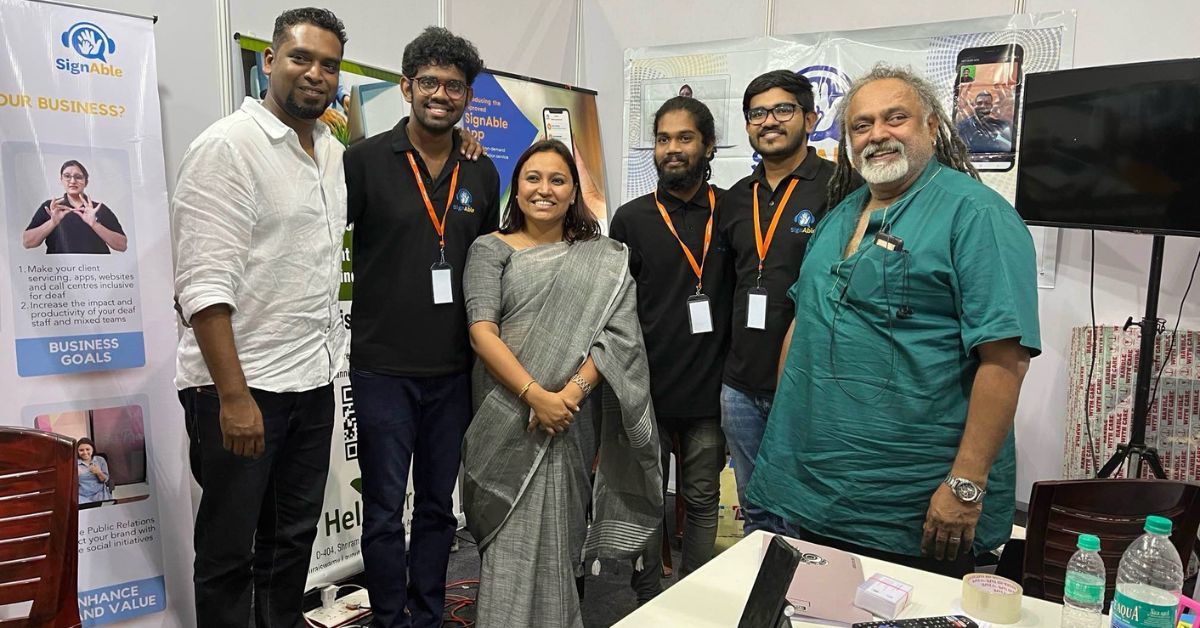
“Upon my return to India, the first thought that crossed my mind was how to establish better access to sign language. Fortunately, I met Tarun Sarwal, who also had the idea of working with the Deaf. At first, he employed me to understand what exactly the needs were of the Deaf community. To communicate with each other we needed an interpreter and in the process, I taught him sign language,” she recalls to The Better India.
Over time, they came up with an idea to develop the app.
“While abroad, I received comprehensive access to information and resources that significantly aided my progress. I wanted every Deaf individual like me to have the same opportunity to succeed in whatever field they choose, with complete access to sign language. Together, this shared commitment led us to establish the venture in 2019,” she adds.
Helping the Deaf communicate
Today, SignAble has a diverse pool of about 50 interpreters who assist Deaf people in overcoming communication barriers in 12 different languages, in addition to English. After downloading and subscribing to the app, users can make a call to a person or talk directly to an interpreter if they need face-to-face interpretation. You can check out the process below:
Rupmani says, “The app offers a range of services for B2C, B2B, and B2G, including live translation of YouTube content, translation of learning and development materials, text-to-sign language conversion, offline interpretation services, and online event interpretation support. We recruit interpreters from the ISLRTC, social media platforms, and various community groups.”
“All interpreters undergo rigorous training sessions, and we have successfully trained over 350 interpreters to date. Additionally, we offer Indian Sign Language courses, and our interpreters receive a monthly salary for their contributions,” she adds.
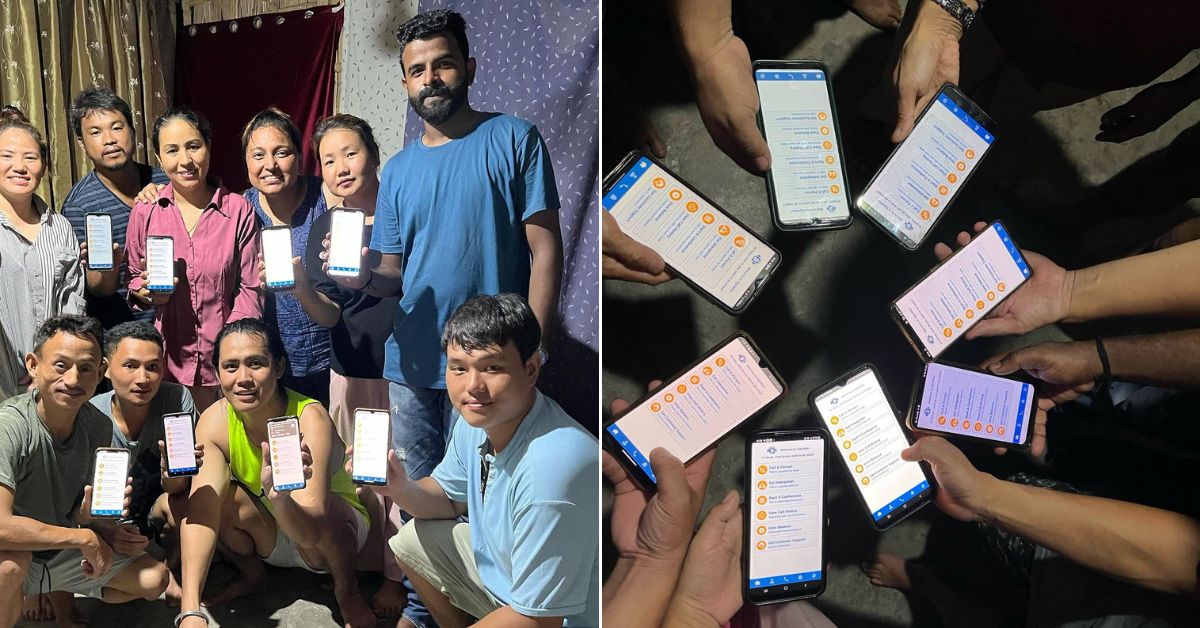
Besides offering translation services, the interpreters also provide training and communication support to employees and employers in companies like Amazon, Wipro, and Accenture.
Business model
Tarun, co-founder and CEO of SignAble Communications, claims that around 50,000 users have signed up for the app. “The online video interpretation service started free for the first two years. It now costs users Rs 499 per month to sustain it. A single usage of 30 minutes for non-registered users is Rs 75,” he said.
Elaborating on the business model further, Rupmani tells The Better India, “SignAble has a B2C service and a B2B set of services. In the B2C space, Deaf people subscribe to make phone calls via our apps (ioS and Android). There is a monthly subscription. This covers the costs of the interpreters, technology, supervision and HR, and allows us to make a decent profit.”
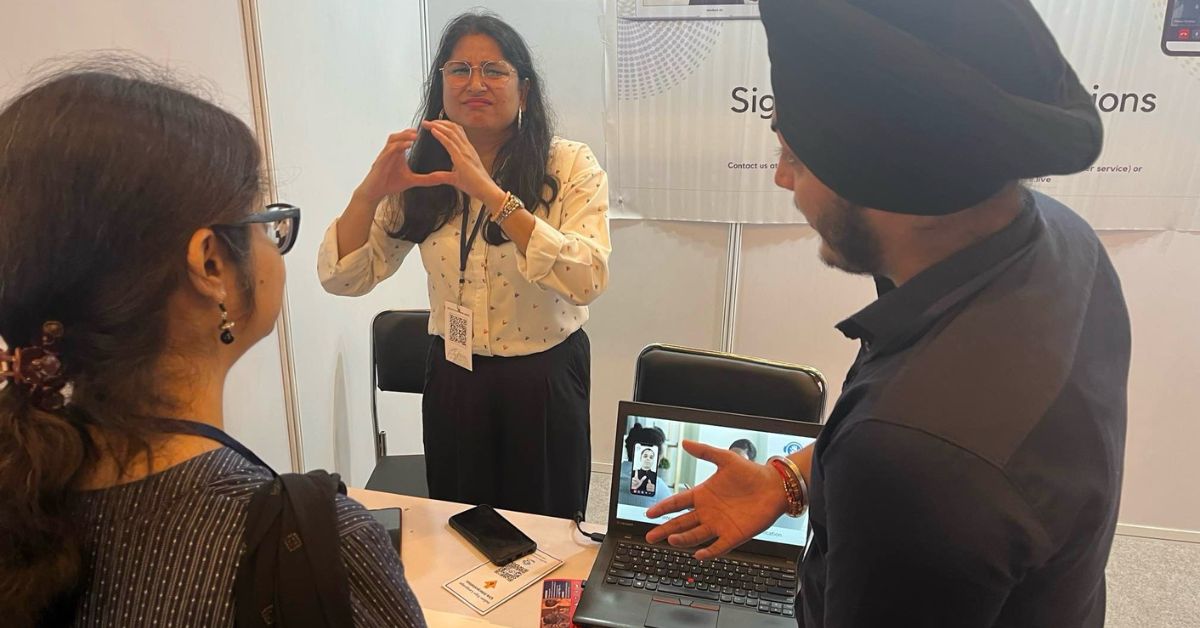
“In the B2B space, companies pay for the interpreters we deploy for them daily. Therefore, we have monthly subscriptions for dedicated interpreters. We also provide other services like ISL training for employees, video conversion for onboarding, training, etc,” she adds.
Looking ahead
So far, the startup has received funding through participating in different prizes and challenges set by organisations like GSMA (Global System for Mobile Communications Association) India, Microsoft, Nasscom, Karnataka Startup Cell, Prosus, Deshpande Foundation, etc.
While the app has opened up new possibilities and opportunities for the Deaf, Rupmani has set bigger goals ahead including taking the startup’s services to the educational sector in a major way. Given her own experience as a child, she wants to ensure that Deaf students have better access to sign language, thus ensuring a more inclusive journey through the education system.
(Edited by Pranita Bhat; Images courtesy Rupmani Chhetri/SignAble Communications/Instagram)
No comments:
Post a Comment